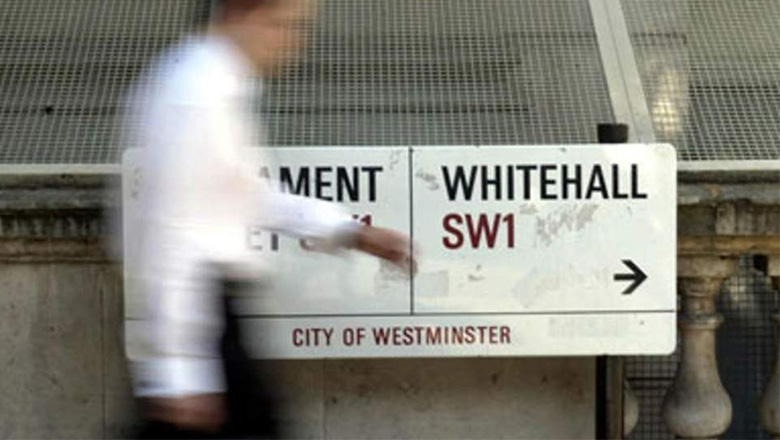In his first spending review since the outbreak of the COVID 19 pandemic, Chancellor of the Exchequer Rishi Sunak (Conservative MP for Richmond (Yorks)) reduced the UK’s overseas aid budget from 0.7% of Gross National Income (GNI) to 0.5%. In his speech to Parliament, he argued that the existing figure was “difficult to justify to the British people, especially when we’re seeing the highest peacetime levels of borrowing on record”.
Although the move had been widely predicted, it has still been condemned by all five previous prime ministers, with David Cameron reportedly being prepared to “go to war” over the issue. It has also resulted in the resignation of Foreign Office Minister Baroness Suggs, who said promises should be kept in the “tough times as well as the good”.
So, given the current economic situation, is reducing the UK’s overseas aid budget the right decision, and what impact will it have on UK Defence?
Arguments for Reducing the UK’s Overseas Aid Budget
The primary argument for reducing the UK’s overseas aid budget at this time is simply that the country cannot afford it. This year alone, the government has spent £280 billion to counter the effects of the coronavirus, and has already allocated an initial £18 billion next year on testing, personal protective equipment and vaccines. Moreover, the Office for Budget Responsibility forecasts that the economy will contract by 11.3% this year – the largest fall in output for more than 300 years – and national borrowing will total £394 billion, equivalent to 19% of Gross Domestic Product. Although by comparison, the planned decrease in aid spending for next year is very small (a £5 billion reduction from £15 to £10 billion), every little helps.
An argument is also made that, when it comes to giving, the UK already does more than its fair share. The only countries with larger aid budgets (in cash terms) are the United States and Germany, and the UK is one of a handful of countries (the others on the list are Denmark, Luxembourg, Norway and Sweden) that currently meet the UN agreed spending of 0.7% on Official Development Assistance (ODA). Even the planned reduction would still leave the UK giving more than countries such as France, Spain and Italy.
Perhaps the final point made by those who want to see a reduction in the UK overseas aid budget is that decision making over its allocation is extremely haphazard and often just plain wrong. For example, India and Pakistan, countries that choose to spend their own money on nuclear weapons, both receive millions of pounds of British aid. Other middle-income countries, such as Brazil and South Africa, are also recipients. Even China, the world’s second largest economy, is given tens of millions a year. Prioritising countries genuinely in need, while cutting out some of the less comprehensible allocations, could still yield savings.
Arguments against Reducing the UK’s Overseas Aid Budget
The obvious argument against reducing the overseas aid budget at this time is that poor countries have been worst hit during the global pandemic and cutting assistance to them now will only increase their hardship. Furthermore, as Romilly Greenhill, director of the ONE campaign that tackles poverty in the developing world, argues, reducing overseas aid is “bad economics that will end up costing more than it saves”.
The other, purely parochial, argument is that, in addition to breaking a manifesto commitment, the government’s decision to reduce the overseas aid budget jeopardises the UK’s ‘soft power’ status, thereby reducing its influence around the world. Former prime ministers Tony Blair and David Cameron highlighted it as a strategic error because “we would be signalling retreat from one of the UK’s vital acts of global leadership”. More bluntly, General Lord Richards, a former chief of the defence staff, also exposed the geopolitical implications of the decision, saying “It’s hugely in the UK’s interests to be as generous as possible, and its much cheaper than fighting wars”.
The Impact on UK Defence
Lord Richards went on to say that “The various levers of state, ranging from the armed forces through intelligence and security, diplomacy and aid, are wholly interdependent and must be kept in balance”. This is both apposite and significant. The reduction over time of the UK’s capacity to project military power has undoubtedly reduced its international standing. It now relies far more on its soft power to wield influence, and punching at the highest weight with its commitment to meet the UN’s ODA target is a key contributor. However, as Tobias Ellwood (chair of the House of Commons Defence Committee and Conservative MP for Bournemouth East) and General Lord Dannatt, former Chief of the General Staff, have pointed out, reducing the overseas aid budget will significantly diminish UK soft power and thereby reduce the impact of the so-called global Britain.
There is also a perception issue. In a time when the government’s financial room for manoeuvre is extremely limited, it has committed to an increase in defence spending of £24 billion over the next four years while, at the same time, deciding to spend £5 billion a year less on ODA. Even though there’s no suggestion from within HM Treasury that the former is being offset by the latter, the optics are pretty poor. Not everyone agrees with the Prime Minister’s decision to bolster defence spending, and that number may well increase if it is thought that money earmarked to help the needy was now being used to pay for additional military capability.
The other obvious loser of this disjointed approach is the ongoing Integrated Review. Far from being the definitive definition of the UK’s role in the world over the next decade, it is in danger of being overtaken by events. As former National Security Advisor Lord Ricketts suggested in a recent Tweet “These piecemeal decisions are drawing the lines of British national strategy well before the promised Integrated Review. Not looking very integrated!”
Conclusion
As @onUKDefence has previously discussed, in today’s world, defence and overseas aid are inextricably linked. Faced with the worst economic situation in living memory, it is easy to see why the Chancellor has reduced the overseas aid budget. However, it is also easy to see how that will hurt the world’s poorest people, plus, from a purely realpolitik perspective, how it will have a negative impact on the UK’s standing globally. The nation’s current commitment to ODA is enshrined in law, so legislation will be needed to reduce it. That legislation must include a time-bound commitment to return to the UN agreed level. Charity does begin at home; however, both morally and strategically, the UK can only overlook its overseas aid responsibilities for the shortest time.






